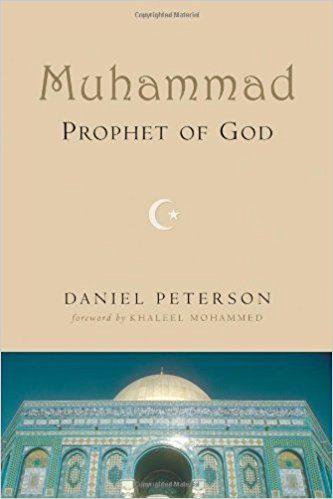
(Wikimedia Commons photo by Mohammad Nowfal)
I’m frequently assured by his disciples that the late Christopher Hitchens was a first-rate scholar whose writings and speeches about theism were deeply learned and impeccably researched.
Having spent considerable time with his 2007 bestseller god is Not Great, I find such assurances risible. Mr. Hitchens was a gifted stylist and a formidable polemicist, and there are many things about him that I rather liked, but he was careless and sloppy, and his positions were often — in my judgment — more a matter of Attitude than the result of rigorous reasoning on the basis of solid fact.
I was reminded of this when watching a speech that he gave some years before his too-early death on 15 December 2011.
In it, he describes Muhammad, the Arabian prophet who founded Islam, as “an illiterate, epileptic shepherd.”
Such a characterization is all-too-typical of his carelessness about the relevant facts.
The strongest case can be made for Muhammad’s illiteracy, but it’s not, in the end, very convincing.
Muhammad is described in Arabic as al-nabi al-ummi, which is often rendered as “the illiterate prophet.” But is that the correct translation? Only quite dubiously so.
In contemporary Modern Standard Arabic and its associated colloquial dialects, ummiyya has come to mean “illiteracy” and ummi to mean “illiterate.” At its root, though, the word is related to the term umma (أمة), which is the common word for “community” or even “people.” Thus, for instance, the worldwide Islamic community is typically called the ummat al-Islām (أمة الإسلام).
Ummi was originally a nisba adjective denoting someone or something pertaining to, or belonging to, “the people” or “the community.” In German, one might similarly say that someone is “of the people,” or “of the Volk,” or völkisch, which latter term has come to mean something like “populist.”
It is, in other words, very closely analogous to the English adjective lay, meaning “uneducated, non-professional, unlearned; non-clerical,” which derives from the Late Latin laicus, which derives in turn from the Greek laïkos “of the people.” That Greek adjective is derived from the Greek noun laos “(the common) folk, the people, the crowd.”

I won’t get into the issue here, but the evidence is quite strong that literacy of at least a basic functional sort was common in seventh-century Mecca and specifically among the first Muslims, and it is very likely that Muhammad himself knew how to read and keep written commercial accounts.
I would take ummi, in Muhammad’s case, to indicate that the Prophet of Islam was a layman, not a learned student of the Jewish or Christian scriptures. He was a “lay prophet” (nabi ummi), but I’m not remotely persuaded that he was actually illiterate. Ironically, in his characterization of Muhammad, Christopher Hitchens has adopted a centuries-old Muslim apologetic position intended to emphasize the miraculous character of the (already quite remarkable) Qur’an, which Muslims believe to have been revealed through Muhammad.
From here on, though, Mr. Hitchens’s position deteriorates rapidly and severely. Was Muhammad epileptic? This was a claim advanced by a few western Orientalists around the turn of the previous century. There is essentially no evidence to support it, however, and, if there’s a significant scholar of Islam or biographer of Muhammad who advocates it today, I’m unaware of such a person.
And was Muhammad a shepherd? Again, some early Arabic sources claim that he herded sheep for a brief while — in order, they expressly say, to fulfill the (supposed) expectation that all prophets have been shepherds. But it’s long been recognized by scholars that Islam was born in the settled urban center of Mecca rather than in the wild desert, and that Muhammad was a caravan merchant (hence the need to keep and read accounts) rather than a camel nomad and herdsman. The Qur’an, for instance, is liberally sprinkled with mercantile imagery, while the desert Arabs are frequently condemned as unreliable and even as unbelievers.
















